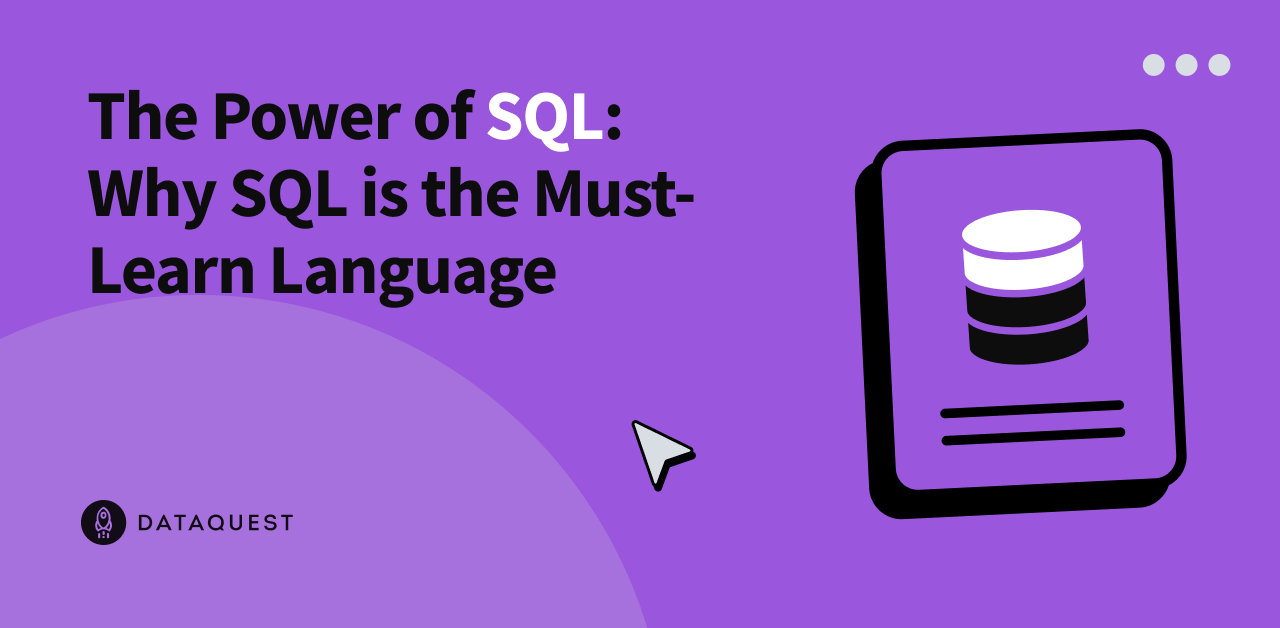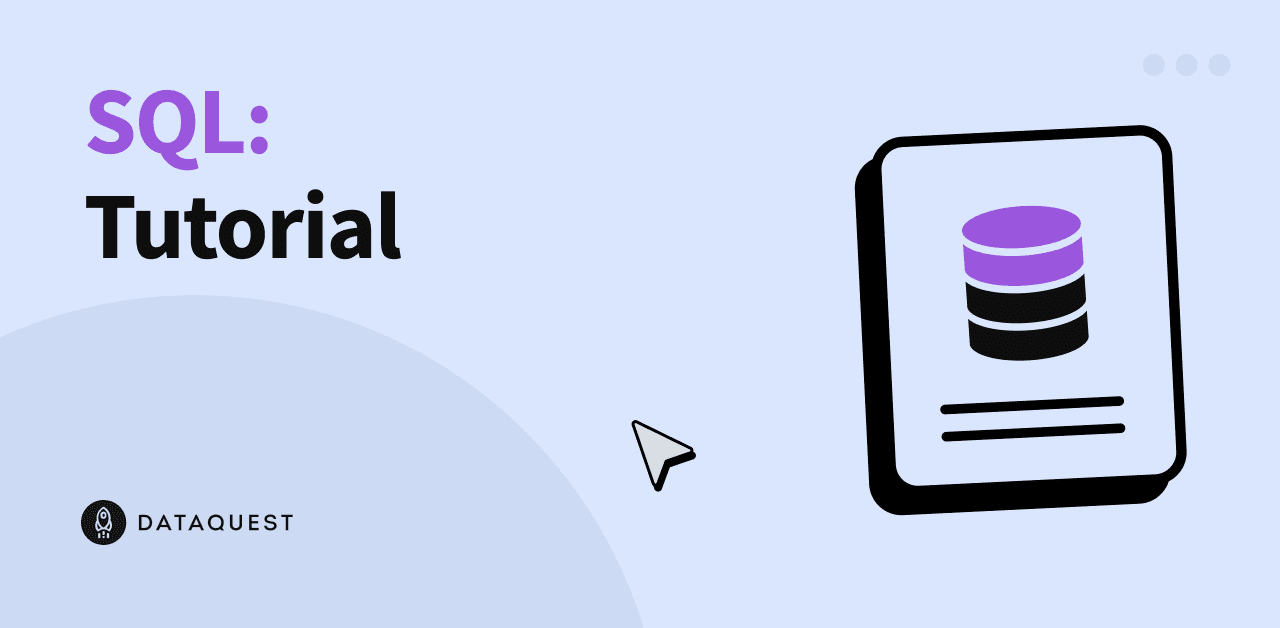15 Recruiters Reveal If SQL Certifications Are Worth It
Will getting a SQL certification actually help you get a data job in the age of AI?
There's a lot of conflicting answers out there, but we're here to clear the air.
In this article, we’ll dispel some of the myths regarding SQL certifications, shed light on how hiring managers view these certificates, and back up our claims with actual data. We'll also explore why SQL skills are more important than ever in the era of artificial intelligence and machine learning.
Do You Need a SQL Certification for an AI or Data Science Job? It Depends.
Learning SQL is more crucial than ever if you want to get a job in data, especially with the rapid advancements in artificial intelligence (AI) and machine learning (ML). For example, SQL skills are essential for accessing and preparing the massive datasets needed to train cutting-edge ML models, analyzing model performance, and deriving insights from AI outputs. But do you need an actual certificate to prove this knowledge? It depends on your desired role in the data science and AI field.
When You DON'T Need a Certificate
Are you planning to work as a data analyst, data engineer, AI/ML engineer, or data scientist?
Then, the answer is: No, you do not need a SQL certificate. You most certainly need SQL skills for these jobs, but a certification won’t be required. In fact, it probably won’t even help.
Here’s why. . .
What Hiring Managers Have to Say About SQL Certificates
I recently interviewed data science hiring managers, recruiters, and other professionals for a data science career guide. I asked them about the skills and qualifications they wanted to see in good job candidates for data science and AI roles.
Throughout my 200 pages of interview transcripts, the term “SQL” is mentioned a lot. It's clearly a skill that most hiring managers want to see, especially as data becomes the fuel for AI and ML models. But the terms “certification” and “certificate”? Those words don’t appear in the transcripts at all.
Not a single person I spoke to thought certificates were important enough to even mention.
In other words, the people who hire data analysts, data scientists and AI/ML engineers typically don’t care about certifications. Having a SQL certificate on your resume isn’t likely to impact their decision one way or the other.
Why Aren’t AI and Data Science Recruiters Interested in Certificates?
Certificates in the industry are widely available and heavily promoted. But most AI and data science employers aren’t impressed with them. Why not?
The short answer is that there’s no “standard” certification for SQL. Plus, there are so many different online and offline SQL certification options that employers struggle to determine whether these credentials actually mean anything, especially in the rapidly evolving fields of AI and data science.
Rather than relying on a single piece of paper that may or may not equate to actual skills, it’s easier for employers to simply look at an applicant’s project portfolio. Tangible proof of real-world experience working with SQL for AI and data science applications is a more reliable representation of skills compared to a generic certification.
The Importance of SQL Skills for AI and Machine Learning
While certifications may not be necessary, the SQL skills they aim to validate are absolutely essential for anyone working with data, especially now that use of AI is on the rise. Here are some of the key ways SQL powers today's most cutting-edge AI applications:
- Training Data Preparation - ML models are only as good as the data they're trained on. SQL is used heavily in feature engineering - extracting, transforming and selecting the most predictive data attributes to optimize model performance.
- Data Labeling and Annotation - For supervised learning approaches, SQL is critical for efficiently labeling large training datasets and associating relevant metadata.
- Model Evaluation and Optimization - Data scientists and ML engineers use SQL to pull in holdout test data, calculate performance metrics, and analyze errors to iteratively improve models.
- Deploying AI Applications - Once a model is trained, SQL is key for feeding in real-world data, returning predictions, and logging performance for AI systems running in production.
As you can see, SQL is an essential part of the AI workflow, from experimentation to deployment. That's why demonstrating SQL skills is so important for AI and data science jobs, even if a formal certification isn't required.
The Exception
For most roles in AI and data science, a SQL certificate isn’t necessary. But there are exceptions to this rule.
For example, if you want to work in database administration as opposed to data science or AI/ML engineering, a certificate might be required. Likewise, if you’re looking at a very specific company or industry, getting SQL certified could be helpful.
There are many "flavors" of SQL tied to different database systems and tools commonly used in enterprise AI and ML workflows. So, there may be official certifications associated with the specific type of SQL a company uses that are valuable, or even mandatory.
For example, if you’re applying for a database job at a company that uses Microsoft’s SQL Server to support their AI initiatives, earning one of Microsoft’s Azure Database Administrator certificates could be helpful. If you’re applying for a job at a company that uses Oracle for their AI infrastructure, getting an Oracle Database SQL certification may be required.
SQL Server certifications like Microsoft's Azure Database Administrator Associate are in high demand as more AI moves to the cloud. For companies leveraging Oracle databases for AI applications, the Oracle Autonomous Database Cloud Certification is highly valued.
So while database admin roles are more of an exception, even here skills and experience tend to outweigh certifications. Most AI-focused companies care mainly about your ability to efficiently manage the flow and storage of training data, not a piece of paper.
Most AI and Data Science Jobs Don’t Require Certification
Let’s be clear, though. For the vast majority of AI and data science roles, specific certifications are not usually required. The different variations of SQL rarely differ too much from “base” SQL. Thus, most employers won’t be concerned about whether you’ve mastered a particular brand’s proprietary tweaks.
As a general rule, AI and data science recruiters just want to see proof that you've got the fundamental SQL skills to access and filter datasets. Certifications don't really prove that you have a particular skill, so the best way to demonstrate your SQL knowledge on a job application is to include projects that show off your SQL mastery in an AI or data science context.
Is a SQL Certification Worth it for AI and Data Science?
It depends. Ask yourself: Is the certification program teaching you the SQL skills that are valuable for AI and data science applications, or just giving you a bullet point for your LinkedIn? The former can be worth it. The latter? Not so much.
The price of the certification is also an important consideration. Not many people have thousands to spend on a SQL certification. Even if you do, though, there’s no good reason to pay that much. You can learn SQL interactively, get hands-on with real AI and data science projects, and earn a certification for a much lower price on platforms like Dataquest.
What SQL Certificate Is Best?
As mentioned above, there’s a good chance you don’t need a SQL certificate. But if you do feel you need one, or you'd just like to have one, here are some of the best SQL certifications available with a focus on AI and data science applications:
Dataquest’s SQL Courses
These are great options for learning SQL for AI, data science and data analysis. They’ll take you hands-on with real SQL databases and show you how to write queries to pull, filter, and analyze the data you need. For example, you can use the skills you'll gain to analyze the massive datasets used in cutting-edge AI and ML applications. All of our SQL courses offer certifications that you can add to your LinkedIn after you’ve completed them. They also include guided projects that you can complete and add to your GitHub and resume to showcase your SQL skills to potential employers!
If you complete the Dataquest SQL courses and want to go deeper into AI and ML, you can enroll in the Data Scientist in Python path.
MTA: Database Fundamentals
This is a Microsoft certification that covers some of the fundamentals of SQL for database administration. It is focused on Microsoft’s SQL Server product, but many of the skills it covers will be relevant to other SQL-based relational database systems.
Microsoft’s Azure Database Administrator Certificate
This is a great option if you're applying to database administrator jobs at companies that use Microsoft SQL Server to support their AI initiatives. The Azure certification is the newest and most relevant certification related to Microsoft SQL Server.
Oracle Database SQL Certification
This could be a good certification for anyone who’s interested in database jobs at companies that use Oracle.
Koenig SQL Certifications
Koenig offers a variety of SQL-related certification programs, although they tend to be quite pricey (over US $1,000 for most programs). Most of these certifications are specific to particular database technologies (think Microsoft SQL Server) rather than being aimed at building general SQL knowledge. Thus, they’re best for those who know they’ll need training in a specific type of database for a job as a database administrator.
Are University, edX, or Coursera Certifications in SQL Too Good to Be True for AI and Data Science? Unfortunately, Yes.
Interested in a more general SQL certifications? You could get certified through a university-affiliated program. These certification programs are available either online or in-person. For example, there’s a Stanford program at EdX. And programs affiliated with UC Davis and the University of Michigan can be found at Coursera.
These programs appear to offer some of the prestige of a university degree without the expense or the time commitment. Unfortunately, AI and data science hiring managers don’t usually see them that way.

Why Employers Aren’t Impressed with SQL Certificates from Universities
Employers know that a Stanford certificate and a Stanford degree are very different things. These programs rarely include the rigorous testing or substantial AI and data science project work that would impress recruiters.
The Flawed University Formula for Teaching SQL
Most online university certificate programs follow a basic formula:
- Watch video lectures to learn the material.
- Take multiple-choice or fill-in-the-blank quizzes to test your knowledge.
- If you complete any kind of hands-on project, it is ungraded, or graded by other learners in your cohort.
This format is immensely popular because it is the best way for universities to monetize their course material. All they have to do is record some lectures, write a few quizzes, and then hundreds of thousands of students can move through the courses with no additional effort or expense required.
It's easy and profitable for the universities. That doesn't mean it's necessarily effective for teaching the SQL skills needed for real-world AI and data science work, though, and employers know it.
With many of these certification providers, it’s possible to complete an online programming certification without ever having written or run a line of code! So you can see why a certification like this doesn’t hold much weight with recruiters.
How Can I Learn the SQL Skills Employers Want for AI and Data Science Jobs?
Getting hands-on experience with writing and running SQL queries is imperative for aspiring AI and data science practitioners. So is working with real-world projects. The best way to learn these critical professional skills is by doing them, not by watching a professor talk about them.
That’s why at Dataquest, we have an interactive online platform that lets you write and run real SQL queries on real data right from your browser window. As you’re learning new SQL concepts, you’ll be immediately applying them to relevant data science and AI problems. And you don't have to worry about getting stuck because Dataquest provides an AI coding assistant to answer your SLQ questions. This is hands-down the best way to learn SQL.
After each course, you’ll be asked to synthesize your new learning into a longer-form guided project. This is something that you can customize and put on your resume and GitHub once you’re finished. We’ll give you a certificate, too, but that probably won’t be the most valuable takeaway. Of course, the best way to determine if something is worth it is always to try it for yourself. At Dataquest, you can sign up for a free account and dive right into learning the SQL skills you need to succeed in the age of AI, with the help of our AI coding assistant.


